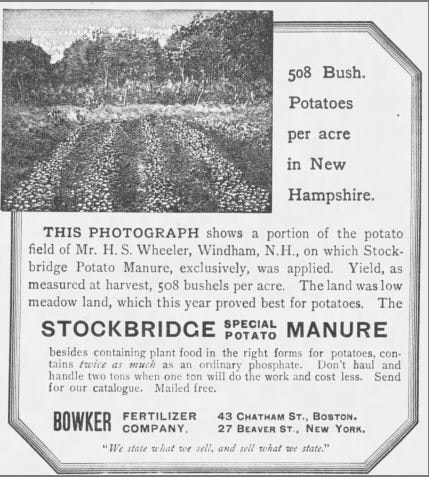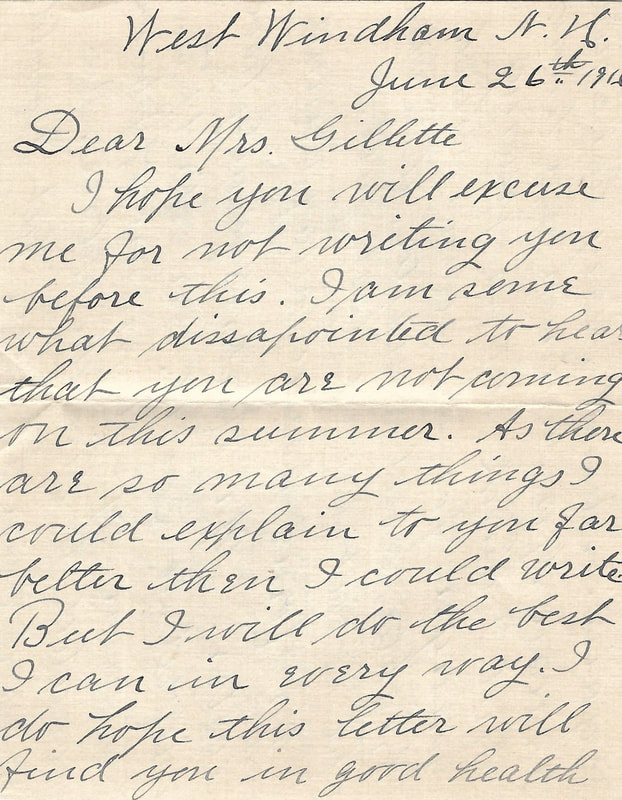|
In 1893 the average American potato farmer produced just over 78 bushels of potatoes per acre, according to research compiled by the Federal Reserve Bank of St. Louis. That same year, with help from some specially formulated manure, one local farmer was able to crush that average with a yield of 508 bushels per acre. Henry S. Wheeler was a farmer on the Windham/Derry line, on what was known as the "Fitz Farm". Wheeler lived on the farm with his wife, Hannah, a Derry native he married in 1877, along with their five children: Caroline, Sarah, Mary, Elizabeth, and Henrietta. With a family of seven to feed, Wheeler undoubtedly needed any advantage he could find in ensuring a successful harvest each year. In 1893 Wheeler tried Stockbridge Special Potato Manure, which resulted in a fantastic harvest of over 500 bushels of potatoes per acre. According to an ad for the product, it contained "plant food in the right forms for potatoes" in quantities "twice as much as an ordinary phosphate". With double the amount of ingredients as competing manures, Stockbridge was advertised as a time saving and money saving alternative to their competitors: "Don't haul and handle two tons when one ton will do the work and cost less." Such a proposition was undoubtedly attractive to Wheeler who was so successful with the product that the company took a photograph of his farm to use in their advertising.
0 Comments
Mrs. Edwin Gillette owned property on the West Windham / Londonderry line, in an area that was considered to be a portion of West Windham in the early 20th century. The Gillette family also owned a home in Arizona and would often summer at their West Windham home. When they were away from Windham, the property would be looked after by Thomas Waterhouse who worked for the family in this capacity. For a now unknown reason, Mrs. Gillette did not make the trip to West Windham during the summer of 1916, leaving Waterhouse to write her to inform her of the goings on in the community. In June of that year he wrote her that Mrs. Horne had passed away around Easter, and the Herberts, another West Windham family, had moved to Lowell. Evidently, the Gillettes would rent out their property as Waterhouse informed Mrs. Gillette that "a man by the name of Johnson wanted to hire the place. I referred him to you, but I would say no, as I do not think you want any more, thank you people over there."
Thomas Waterhouse had been responsible for taking care of the farming on the Gillette property and also wrote that he had "plowed up some of the land for corn and am doing the best I can with every thing." He gladly reported that "all the stock are well and in good condition." However, there had been little time for farming as Waterhouse had been busy with other work, including mowing lawns in Lowell twice a week. |
AuthorDerek Saffie is an avid Windham historian who enjoys researching and sharing his collection with all those interested in the history of the New England town. Archives
November 2019
Categories
All
|

